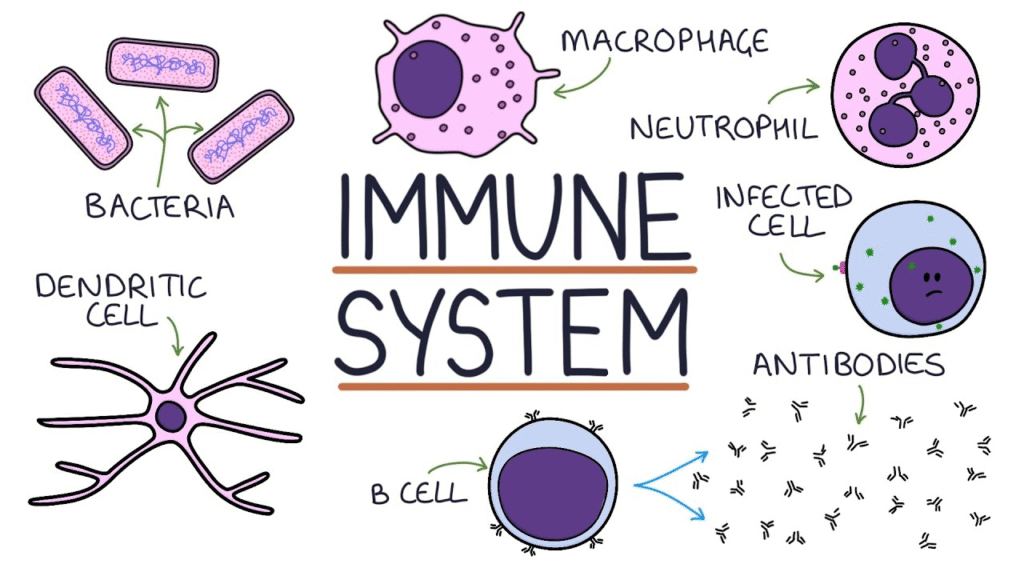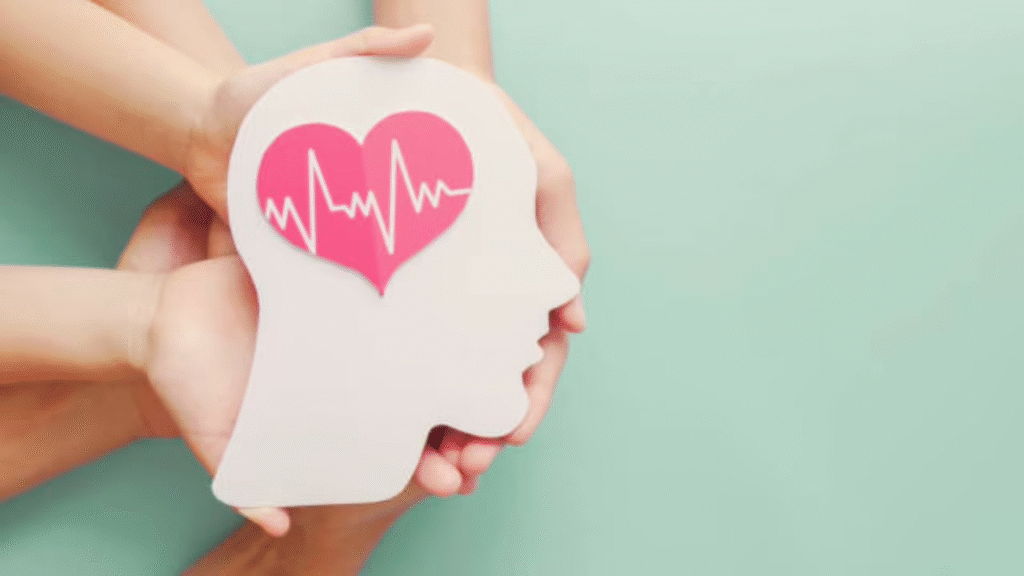Introduction
In recent years, the mind-body connection has become a buzzword in both popular wellness circles and scientific research communities. But what exactly does this term mean? Is it simply a philosophical idea, or is there solid science behind the claim that your mental state can influence your physical health?
The answer lies somewhere in between ancient wisdom and modern evidence. Science increasingly confirms that our thoughts, emotions, and beliefs significantly affect our biological systems — influencing immunity, digestion, heart health, hormonal balance, and even gene expression.
In this article, we’ll explore what the mind-body connection is, dive deep into the scientific mechanisms behind it, examine real-world applications, and provide practical tips for nurturing this connection to enhance both physical and mental well-being.
Key Takeaways
- The mind-body connection describes how mental and emotional states influence physical health, and vice versa.
- Scientific fields like neuroscience, psychoneuroimmunology, and behavioral medicine provide strong evidence for this connection.
- Practices such as meditation, yoga, mindfulness, and CBT can enhance the mind-body connection and improve well-being.
- Positive emotions support health, while chronic stress can contribute to illness.
- The gut-brain axis demonstrates how physical systems and mental states are interconnected.
- You can strengthen your mind-body connection through intentional daily practices — fostering resilience, healing, and vitality.
Understanding the Mind-Body Connection
The mind-body connection refers to the way in which mental processes — such as thoughts, emotions, and attitudes — influence the body’s physical functioning, and vice versa. This concept is rooted in ancient traditions, from Chinese medicine and Ayurveda to Greek philosophy, all of which emphasized the integrated nature of human health.
Modern science, through fields like psychoneuroimmunology (PNI), neuroscience, and behavioral medicine, is now shedding light on the biological basis of this connection.
At its core, the mind-body connection is about recognizing that:
- Mental states can trigger physical responses.
- Physical states can affect mental and emotional well-being.
- The body and mind are part of an integrated system, not separate entities.
The Brain and Nervous System
The brain is the command center of the body. It communicates with every organ and tissue through a vast network of nerves, particularly the autonomic nervous system (ANS), which regulates involuntary bodily functions like heart rate, digestion, and respiration.
Stress and the Sympathetic Nervous System
When we experience stress, the brain activates the sympathetic nervous system — the “fight-or-flight” response. This triggers a cascade of physiological changes:
- Release of stress hormones like cortisol and adrenaline
- Increased heart rate and blood pressure
- Changes in digestion and immune function
- Muscle tension
If stress is chronic, these responses can become maladaptive, contributing to conditions like hypertension, cardiovascular disease, gastrointestinal problems, and weakened immunity.
The Hypothalamic-Pituitary-Adrenal (HPA) Axis
The HPA axis is a key neuroendocrine system that links the brain and the endocrine (hormonal) system. It helps regulate:
- Stress responses
- Energy metabolism
- Mood and emotions
- Immune responses
Dysfunction in the HPA axis — often caused by chronic stress or trauma — is associated with numerous mental and physical illnesses, including depression, anxiety, obesity, diabetes, and autoimmune diseases.
The Immune System

The field of psychoneuroimmunology explores how psychological factors influence the immune system.
- Positive emotions and practices like mindfulness have been shown to strengthen immune function.
- Negative emotions — especially chronic anger, sadness, or fear — can suppress immunity, making the body more vulnerable to infections and diseases.
Neuroplasticity and Epigenetics
Neuroplasticity refers to the brain’s ability to reorganize itself by forming new neural connections. This means that:
- Mental practices such as meditation, gratitude, and cognitive behavioral therapy (CBT) can physically change the structure and function of the brain.
- These changes can improve mood, enhance focus, and reduce symptoms of anxiety and depression.
Epigenetics studies how gene expression can be modified without altering the DNA sequence itself. Stress, trauma, and mental habits can “turn on” or “turn off” certain genes, influencing long-term health outcomes.
The Gut-Brain Axis
The gut is often called the “second brain” because of its extensive network of neurons (the enteric nervous system) and its communication with the central nervous system.
- The gut microbiome — the community of bacteria living in our intestines — influences mood, cognition, and immune function.
- Conversely, stress and emotional states can disrupt gut health, leading to issues like irritable bowel syndrome (IBS).
Real-World Evidence: Mind-Body Practices That Work
Meditation
Research shows that mindfulness meditation can:
- Lower cortisol levels
- Decrease blood pressure
- Strengthen immune function
- Improve focus and emotional regulation
Yoga
Combining breath, movement, and mindfulness, yoga:
- Reduces stress
- Enhances flexibility and strength
- Improves cardiovascular health
- Supports mental clarity and relaxation
Cognitive Behavioral Therapy (CBT)
CBT is a widely used, evidence-based psychotherapy that:
- Helps people identify and change negative thought patterns
- Improves mood and anxiety
- Reduces symptoms of physical illnesses such as chronic pain and irritable bowel syndrome
Biofeedback
Biofeedback uses electronic monitoring to help people gain awareness and control over physiological functions like:
- Heart rate
- Muscle tension
- Skin temperature
- Brain waves
Studies show that biofeedback can help manage:
- Hypertension
- Migraines
- Chronic pain
- Anxiety
Expressive Writing and Emotional Processing
Expressing emotions through writing or therapy has been linked to:
- Improved immune function
- Better emotional well-being
- Reduced symptoms of chronic illness
Mind-Body Connection in Medicine

Placebo Effect
The placebo effect is one of the most striking examples of the mind-body connection. When a person believes they are receiving effective treatment, they often experience real physical improvements — even if the “treatment” was inert.
Studies show that the placebo effect can:
- Reduce pain
- Lower blood pressure
- Improve symptoms in conditions like depression and Parkinson’s disease
Psychosomatic Illness
Psychosomatic illnesses occur when psychological distress manifests as physical symptoms — such as tension headaches, gastrointestinal issues, or chronic fatigue — without a clear medical cause.
Recognizing and addressing the underlying emotional factors often leads to symptom improvement.
How to Strengthen Your Mind-Body Connection
- Practice mindfulness daily through meditation, yoga, or mindful movement.
- Cultivate positive emotions through gratitude, compassion, and connection.
- Manage stress with relaxation techniques like deep breathing and progressive muscle relaxation.
- Prioritize sleep, which is critical for mental and physical health.
- Eat a gut-friendly diet rich in fiber, probiotics, and prebiotics.
- Stay physically active, as movement is a powerful way to integrate mind and body.
- Seek social support and nurture meaningful relationships.
- Engage in creative activities like music, art, or dance, which naturally foster mind-body awareness.
The Historical Roots of the Mind-Body Connection
Though modern science is just now catching up, the concept of a mind-body connection is not new.
- In Ancient Greece, Hippocrates (the “father of medicine”) recognized the importance of emotional and mental well-being in physical health.
- In Traditional Chinese Medicine (TCM), practices like acupuncture and qigong aim to balance qi (life force) — integrating mind, body, and spirit.
- Ayurveda, the traditional healing system of India, teaches that imbalances in the mind lead to imbalances in the body.
- Even indigenous cultures worldwide practice rituals that view healing as an emotional, spiritual, and physical journey.
Western medicine, however, for much of the 19th and 20th centuries, treated the body and mind as separate. Only recently — through psychology, neuroscience, and holistic health approaches — has the biomedical model expanded to embrace the mind-body connection.
Deeper Look: The Neurobiology of Emotion and Health
The Role of Neurotransmitters
Neurotransmitters are chemical messengers that influence both brain function and physical processes:
- Serotonin: Affects mood, sleep, and digestion.
- Dopamine: Involved in motivation, pleasure, and reward.
- GABA (Gamma-aminobutyric acid): Helps reduce anxiety and promote relaxation.
- Endorphins: Natural painkillers that create feelings of well-being.
Your thoughts and emotional states can alter the production of these neurotransmitters — which in turn affects immunity, digestion, heart function, and pain perception.
Chronic Stress and Disease: The Modern Epidemic
Studies show that chronic stress contributes to many of today’s most prevalent diseases:
| Disease | Connection to Stress |
|---|---|
| Heart Disease | Stress raises blood pressure, promotes inflammation, and increases heart attack risk. |
| Diabetes | Stress hormones disrupt insulin regulation. |
| Autoimmune Disorders | Chronic stress can worsen immune system dysfunction. |
| Depression and Anxiety | Constant stress changes brain chemistry and neural circuits. |
| Gastrointestinal Disorders | Stress exacerbates IBS, ulcers, acid reflux, and more. |
Chronic stress essentially “wears down” the body’s ability to heal and maintain balance. Managing mental well-being is thus a critical part of preventing and treating disease.
Case Study: How Meditation Changes the Brain
One of the most researched mind-body practices is meditation. A landmark study from Harvard (Lazar et al., 2011) found that 8 weeks of mindfulness meditation:
- Increased gray matter density in the hippocampus (linked to memory and learning)
- Decreased gray matter in the amygdala (associated with stress and fear)
- Enhanced emotional regulation and resilience
This shows how mental practice can create real, physical changes in the brain that improve mental and physical health.
Advanced Topics: The Vagus Nerve and Health
The vagus nerve is a critical pathway in the mind-body connection:
- It runs from the brainstem to major organs (heart, lungs, gut).
- It controls the “rest-and-digest” parasympathetic nervous system.
- It modulates inflammation, digestion, heart rate, and emotional state.
Practices like deep breathing, meditation, cold exposure, and singing can stimulate the vagus nerve, promoting relaxation, lowering stress hormones, improving heart rate variability, and enhancing immune function.
Integrative Medicine: Where Science and Tradition Meet
Integrative medicine — practiced at major centers like the Mayo Clinic and Cleveland Clinic — combines conventional medical treatment with evidence-based mind-body therapies, such as:
- Mindfulness-Based Stress Reduction (MBSR)
- Cognitive Behavioral Therapy (CBT)
- Yoga therapy
- Tai Chi and Qigong
- Nutritional counseling
- Guided imagery
These approaches help patients manage chronic conditions, reduce medication reliance, and improve overall quality of life.
Social and Cultural Dimensions of the Mind-Body Connection
The Power of Belief
Research shows that belief systems — shaped by culture, upbringing, and community — strongly affect how people experience illness and healing.
- Positive expectations can enhance recovery (placebo effect).
- Fear and hopelessness can worsen outcomes (nocebo effect).
- Strong social support networks improve resilience and survival rates.
This highlights the importance of not just biological, but also social and psychological factors in health.
Cutting-Edge Research: The Future of the Mind-Body Connection
Scientists are now exploring:
- Psychedelic-assisted therapy (with psilocybin or MDMA) to treat PTSD and depression by facilitating deep emotional processing and healing.
- Bioelectronic medicine — using electrical stimulation of the vagus nerve to treat inflammation and autoimmune diseases.
- Digital therapeutics — apps and wearables that provide guided Mind-body interventions.
- Epigenetic therapies that modify gene expression through stress management and mental health interventions.
Also Read : What Are the Common Myths About Health and Fitness?
Conclusion
The mind and body are inextricably linked, forming an integrated system where thoughts, emotions, and physical health constantly interact. Science now validates what ancient wisdom traditions long understood: how you think and feel profoundly influences how you heal, thrive, and live.
Understanding and nurturing the mind-body connection offers a powerful path to better health. Through mindfulness, emotional awareness, healthy habits, and supportive relationships, you can positively influence your body’s functioning and cultivate resilience in both body and mind.
FAQs
Q1: What does “mind-body connection” mean in simple terms?
A: It refers to how your thoughts, emotions, and mental state can influence your physical health — and how your physical body can affect your mental state.
Q2: Is there scientific evidence for the mind-body connection?
A: Yes. Numerous studies across fields like neuroscience, psychoneuroimmunology, and behavioral medicine show that mental states influence physical processes such as immunity, heart function, and hormonal balance.
Q3: How does stress affect the body?
A: Chronic stress activates the sympathetic nervous system and the HPA axis, leading to increased cortisol, higher blood pressure, inflammation, weakened immunity, and other negative health outcomes.
Q4: Can positive emotions really improve health?
A: Yes. Positive emotions can lower stress hormones, boost immune function, reduce inflammation, and promote overall well-being.
Q5: What practices strengthen the mind-body connection?
A: Meditation, yoga, mindfulness, CBT, relaxation techniques, healthy diet, regular exercise, and good sleep all support a strong mind-body connection.
Q6: How does gut health influence the mind?
A: The gut-brain axis connects gut microbes and the nervous system. A healthy microbiome supports mood, cognition, and stress resilience, while poor gut health can contribute to anxiety and depression.
Q7: Is the placebo effect a real example of the mind-body connection?
A: Absolutely. The placebo effect shows how beliefs and expectations can trigger real physical responses, improving symptoms even without active medical treatment.
